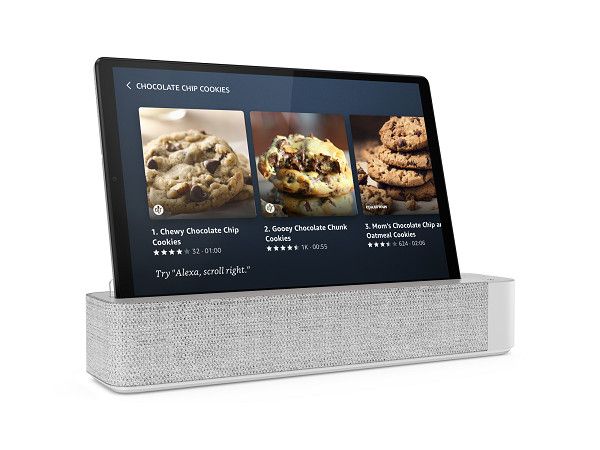
Depending on who you ask, you might hear that Android tablets are dead. They’re not exactly dead, but Windows-powered alternatives and iPads are objectively better products overall. Android, with all its good and bad bits, is not as good as it used to be on tablets. But that doesn’t stop OEMs from trying to make them. Samsung is one of the few manufacturers that is deeply invested in the tablet ecosystem with its Galaxy Tab lineup. Now, Lenovo is launching a couple of new Android tablets of its own: the Lenovo Tab P11 Pro and the second-generation Lenovo Tab M10 HD. And they’re wildly different devices.

Lenovo Tab P11 Pro
The Lenovo Tab P11 Pro is the most powerful device of the two, and it’s being touted as the premium option. It’s powered by a Qualcomm Snapdragon 730G which, while not the highest-end mid-range processor out there, is powerful enough to handle most games and apps, as well as daily usage. There’s an 11.5-inch 2560×1600 resolution, HDR10/Dolby Vision-certified OLED panel to allow for amazing media consumption capabilities, four JBL speakers with Dolby Atmos tuning, an optional keyboard attachment with a trackpad that connects via the 4-point pogo-pin connector, and support for the Lenovo Precision Pen 2 for getting work done on-the-go. The tablet is quite thin at 5.8mm and weighs 485g. It runs Android 10 and features 4/6GB of RAM, 128GB of internal storage, an 8,600mAh battery, a dual 13 MP main + 5 MP wide-angle rear camera array, a dual 8MP + 8MP front camera array, a ToF sensor, and optional LTE support for the international SKU.



The Lenovo Tab M10 HD 2nd Gen series, which is comprised of the regular Tab M10 HD, the Tab M10 HD with Google Assistant, and the Tab M10 HD with Amazon Alexa, on the other hand, are much more modest tablets. Not only spec-wise but also to the public they’re aimed towards. They’re powered by the MediaTek Helio P22T, which is much weaker than the Qualcomm Snapdragon 730G found in the Tab P11 Pro. They have 10.1-inch IPS LCDs at 1280×800 resolution, 2/4GB of RAM, 32/64GB of internal storage expandable via a microSD card slot, a 5,000mAh battery, an 8MP rear camera, a 5MP front-facing camera, run Android 10 out of the box, and feature optional LTE support for the international SKU.
Where these 3 tablets’ hardware differ from one another are in audio and microphones; the regular Tab M10 HD features dual microphone and dual speakers, the Tab M10 HD with Google Assistant features a single microphone with a low-power DSP and dual speakers, and the Tab M10 HD with Amazon Alexa has dual microphones and speakers but supports a Smart Dock with dual 3W speakers and 3 far-field microphones.
Clearly, these devices aren’t catering towards enthusiasts but rather kids and families. In fact, Lenovo partnered with Google to introduce a new mode called Kids Space, which features apps, books, and videos curated for children.
The Lenovo Tab P11 Pro will start at €699 including VAT, which is definitely quite a bit more expensive than we’d expect from a device with those specs. The Lenovo Tab M10 HD though, on the other hand, starts at a much more modest price point of €159 including VAT. The Tab M10 HD with Google Assistant starts at €179 including VAT while the Tab M10 HD with Amazon Alexa starts at €199 including VAT. The regular Tab M10 HD is expected to become available starting September 2020, the Tab M10 HD with Google Assistant is expected to be available starting October 2020, and the Tab P11 Pro and Tab M10 HD with Amazon Alexa are expected to be available starting November 2020,
The post Lenovo announces the mid-range Tab P11 Pro and 2nd-gen Tab M10 HD Android tablets appeared first on xda-developers.


0 comments:
Post a Comment